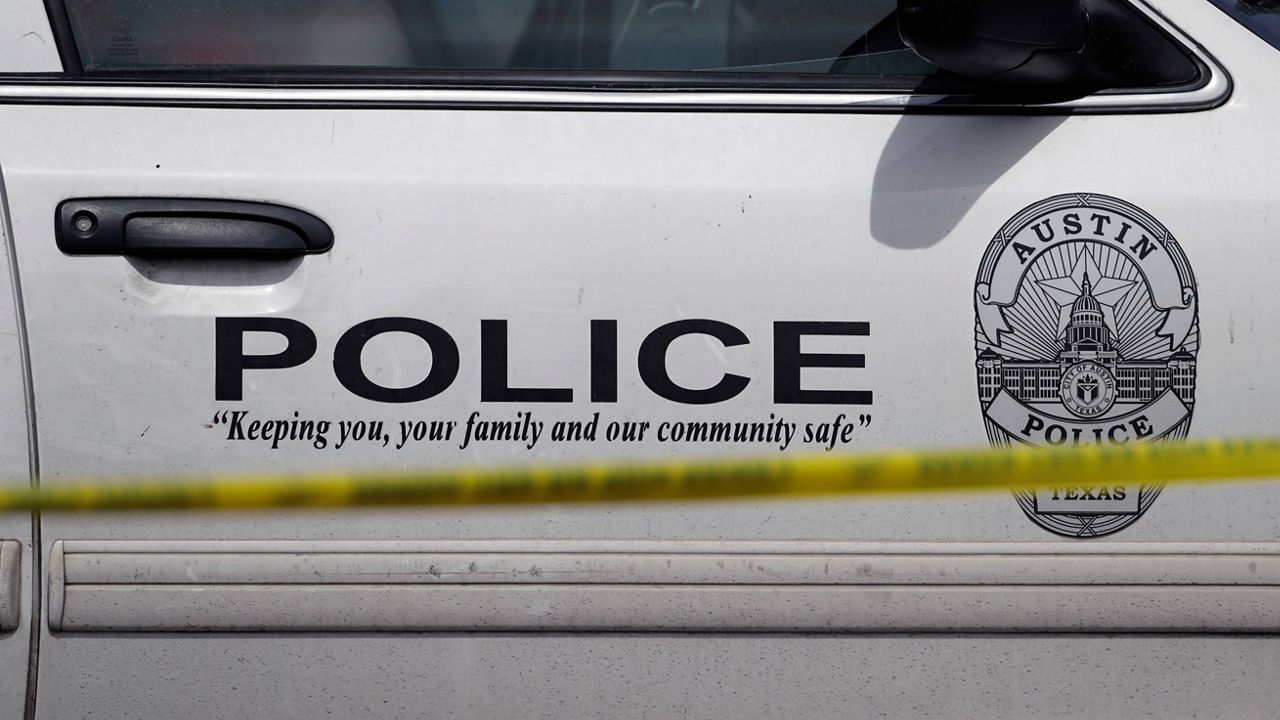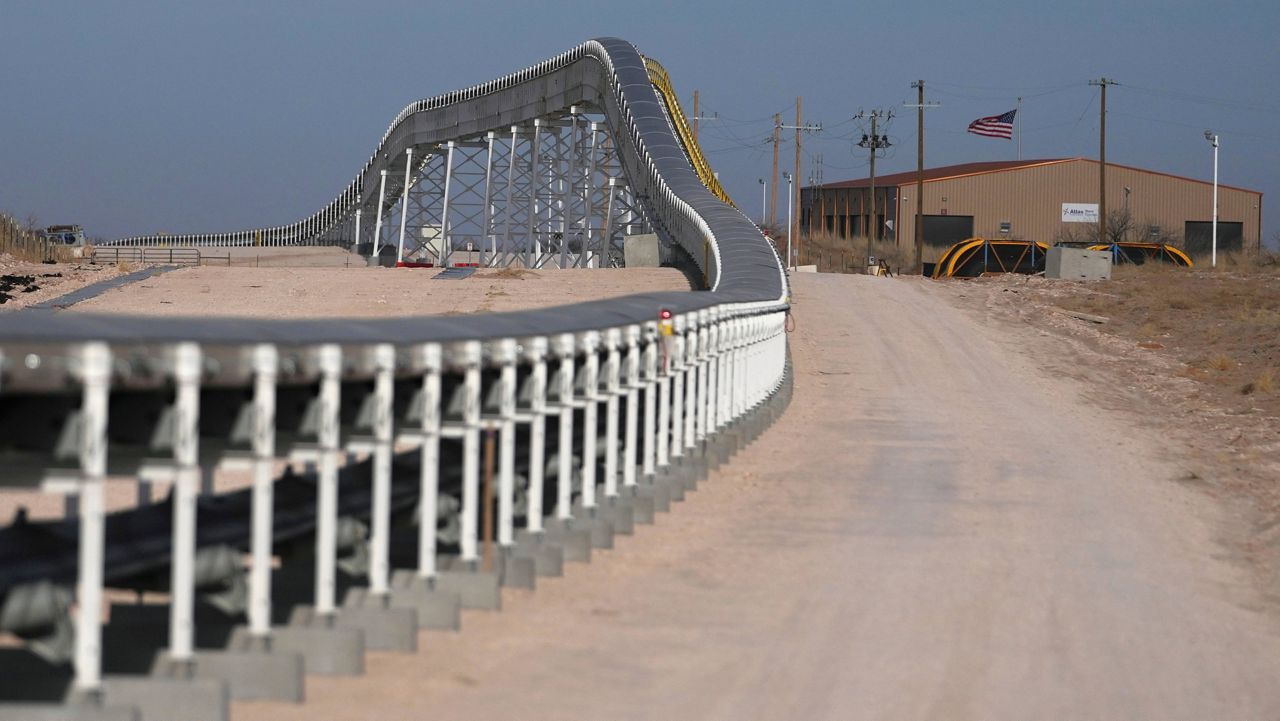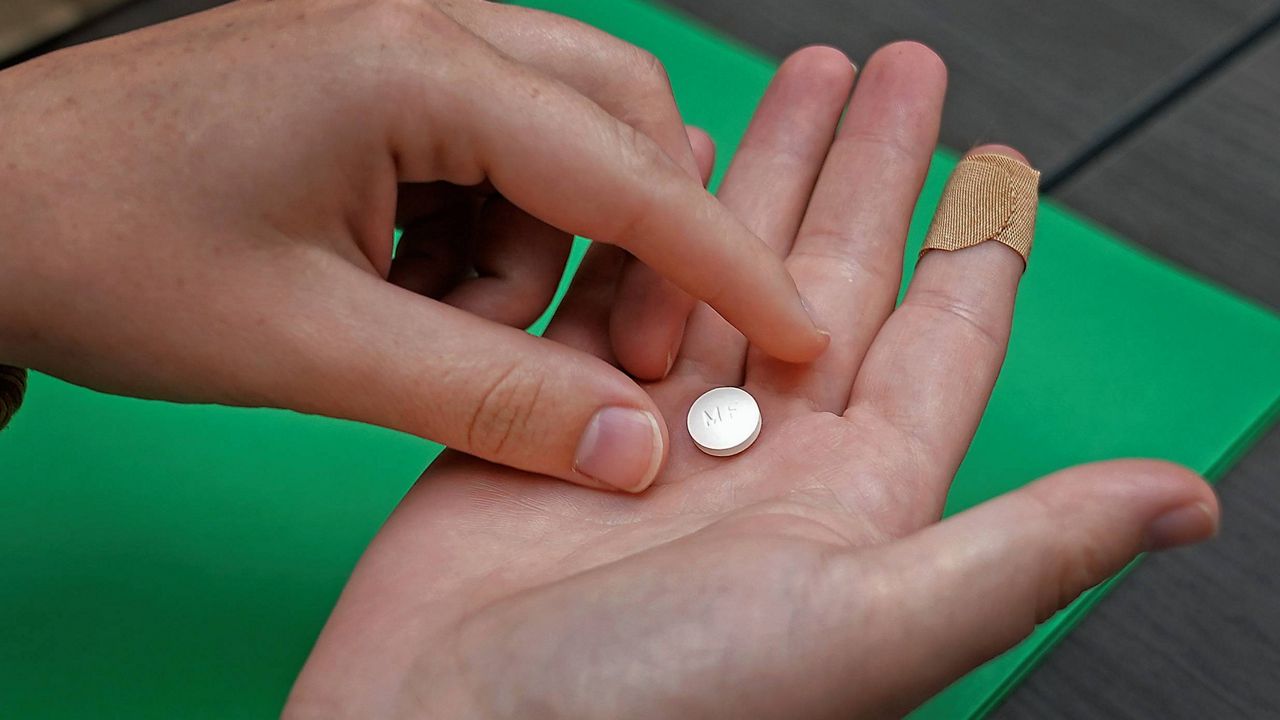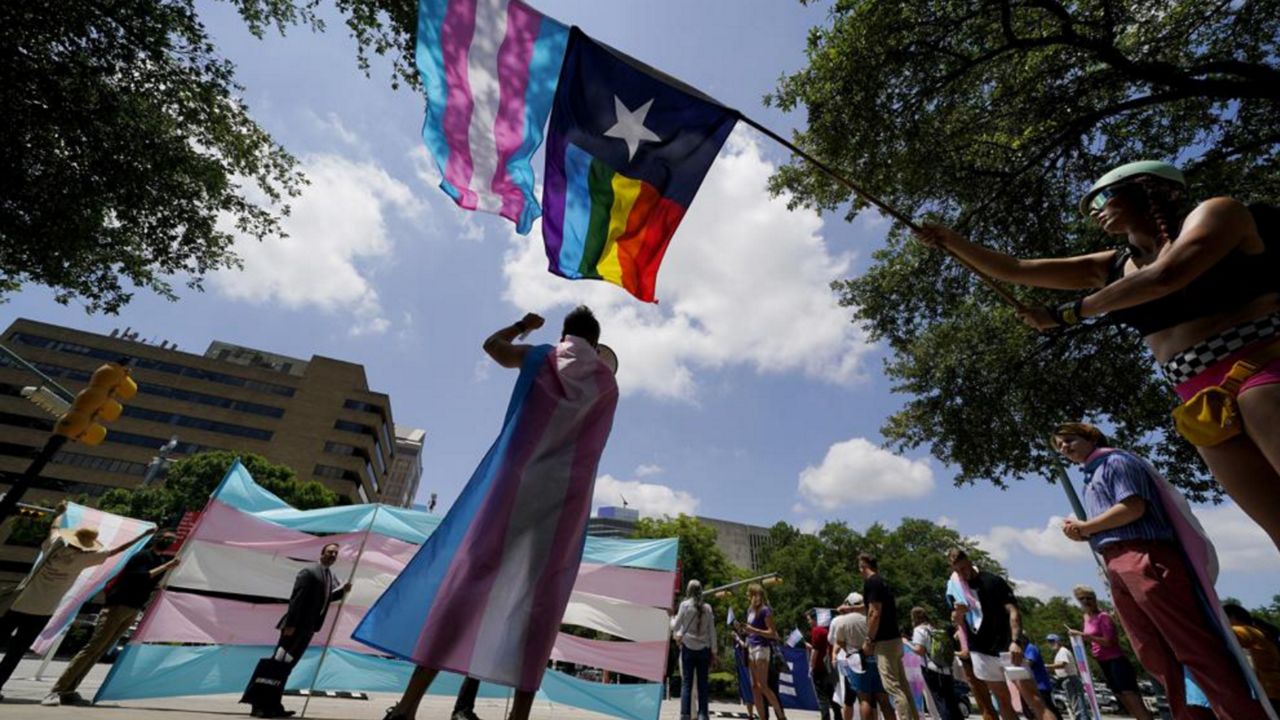DALLAS — Since 2016, the Circuit Trail Conservancy in Dallas has been working to make a 50-mile bike trail around the city a reality. It’s getting closer to the finish line thanks to a new donation of 110 acres of park land from electric utility company Oncor, which closes the land gap in what’s being referred to as "The LOOP" trail system.
"Oncor announced that they were going to donate 110 acres and Parkdale Lake to the city of Dallas for use in the Park and Recreation system and to complete the Trinity Forest Spine Trail, which is part of The LOOP. And so that donation, which is the largest in the city's history since 1938, is critical for us because we're actually going to be using the lake to address all of our flooding issues in one location,” said Circuit Trail Conservancy executive director Philip Hiatt Haigh. “And so what that means is that we're going to be creating a spillway similar to the one that's at the south end of White Rock Lake, at Parkdale, and the trail is going to pass right next to it to show off the natural beauty and some of the features of that area.”
The Trinity Forest Spine Trail is one of the final four projects, totaling 11 miles of new trails that the CTC is building to connect to the existing 39 miles of trails in Dallas. Hiatt Haigh says the donation of land is critical in allowing the organization to complete The LOOP in the way they’ve always wanted to, making them reliable, safe and accessible. He said the area near Ferguson Road/Valleyglen Drive/Samuell Boulevard used to be an eyesore and a safety concern, but now it’ll be a destination spot for those looking to hit the trail.
“This will be the first dedicated bicycle and pedestrian access point into the rest of the [LOOP] system. This is a huge area where safety was a major concern. And so that's one of the reasons why we've cleared out a lot of this underbrush — so that people can see it from the road at all times. Because people don't want to go into an area where you can't be seen, so this is opening it up. We'll have lighting, we'll have benches and shade. So, this is an area that was once unwanted and is now going to be turned into a public space for people to gather,” Haigh said.
Vikki Martin is the executive director for the nonprofit Ferguson Road Initiative. She says this leg of the LOOP will create access to a neighboring park for her community.
“And these families could get on a trail and just skedaddle out over there. They’ve never been able to. I bet you some don’t even know there is a park over there. They see a golf course, they have no idea there's a park,” Martin said. “They will be able to access the [LOOP] trail and get anywhere in the city."
Martin says while people might downplay how beneficial this new trail will be once it’s completed, being able to hop on and get anywhere in the city is a game changer.
"For so long this community has felt neglected and left out and forgotten. There are some folks that don't understand how transformative this is going to be. They think 'Well, I don't go to parks and I don't go on trails.' But I think it's going to mean that this is going to be the creation of a recreation destination. And I think along with it, I am very optimistic that it will be an opportunity to also improve the economic development of the community."
Martin knows that this future access to parkland has been a long time coming, and wants communities across Texas to follow Ferguson Road Initiative’s (FRI) lead in mobilizing neighborhoods toward a common goal, like FRI has with creating a stronger and safer community.
“Start by mobilizing your friends and neighbors in learning how to work with political officials in a positive manner… These trails have been on the boards for, you know, a decade or more. And we're just now seeing it,” Martin said. "Nobody has cared about this community. I say learn to work with each other, learn to identify your needs, then learn to prioritize what those needs are — starting with the things that you can get first.”
No other city in Texas has a trail system coming online like the LOOP and Haigh is hopeful to see it on a nationally competitive scale in the future.
"This should be opened by summer of next year. For the community, they're super excited because summer of next year seems like the blink of an eye when they've been asking for it for 20 years,” Haigh said. "Here in Dallas, we have a lot of momentum on, you know, what we want to become as a city that can have multiple options so that you won't just have, you know, a lot of traffic or bikes, you'll also have transit here. You'll have better sidewalks that connect into these systems, more parks. So really the culture and the identity of Dallas is going to be changing over the next few years as these projects come online."
Haigh knows firsthand how small the number of bicyclists is in Dallas, the very reason he chooses to bike the trails five times a week. He wants Dallas commuters to shift from being car centric to open-minded about using the upcoming 50-mile LOOP Trail.
“I’m trying to use this as much as possible to show that it can be done and also to make sure that we take use of the facilities that are being created right now,” Haigh said. “So, if you have a 50-mile system, what you can look at is people who are starting to change their habits to change how they understand what it means to get around and what they have access to. Because I don't expect a lot of people to do a 50-mile loop, but they may want to go eight miles out on their bike."
As an avid cyclist, Haigh says it’s affirming to know the City of Dallas is focusing on building up the trails for everyone, even those just looking to get outside.
“These trails are not just recreation amenities, but they're also critical infrastructure. You know, that these are things that the city needs in order to be successful for the next 50 years,” Haigh said. "A lot of these amenities and trails are being installed in areas that have never had facilities like this before. So, you know, this is the first trail that will run from far East Dallas and connect into the greater system. This is a city-wide asset, you know, a really amazing unifying resource."
Construction on the Hi Line Connector and the North Phase of the Trinity Forest Spine Trail have begun, and all four new trails in the LOOP will be under construction by 2022. Each trail segment is estimated to take between 12–24 months to complete, but as with any construction project, completion is dependent upon weather and other external conditions. Stay in the know by following this link.










